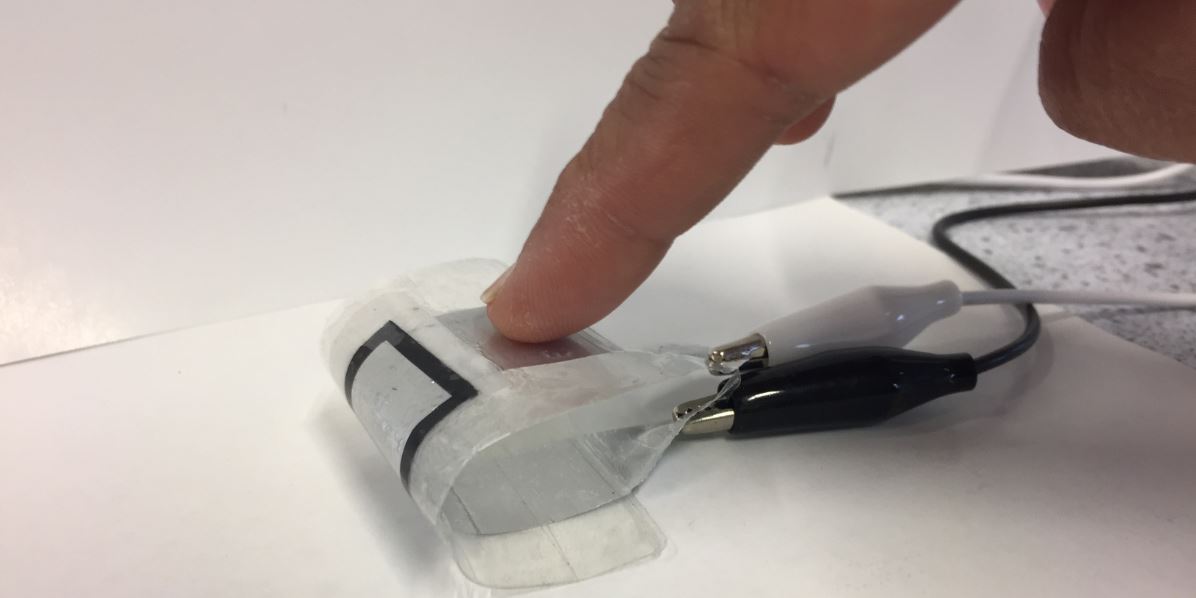QUEEN'S INNOVATION COULD MEAN FLEXIBLE BATTERIES FOR PACEMAKERS AND PHONES 
19 September 2017
Experts at Queen’s have designed a bendable and organic alternative to how medical implants are powered. Currently, devices such as pacemakers and defibrillators are fitted with rigid and metal based batteries, which can cause patient discomfort.
Dr Geetha Srinivasan and a team of researchers from Queen's University Ionic Liquid Laboratories (QUILL) Research Centre, have developed a ‘flexible supercapacitor’ with a longer cycle life, which could power body sensors.
The flexible device is made up of non-flammable electrolytes and organic composites, which are safe to the human body.
The charge in the new battery is expected to last three times as long as in their conventional alternatives. It can also be easily decomposed without incurring the major costs associated with recycling or disposing off metal based batteries, so it will have environmental benefits.
The findings, which have been published in Energy Technology and Green Chemistry, show that the device could be manufactured using readily available natural feedstock, rather than sophisticated and expensive metals or semiconductors.
And the new Queen’s technology could also have a non-medical application in foldable phones or laptops of the future, the designs of which are presently restricted by rigid batteries.
Dr Srinivasan explained: “In modern society, we all increasingly depend on portable electronics such as smartphones and laptops in our everyday lives and this trend has spread to other important areas such as healthcare devices.
“In medical devices such as pacemakers and defibrillators there are two implants, one which is fitted in the heart and another which holds the metal based, rigid batteries – this is implanted under the skin.
“The implant under the skin is wired to the device and can cause patients discomfort as it is rubs against the skin. For this reason batteries need to be compatible to the human body and ideally we would like them to be flexible so that they can adapt to body shapes.”
Dr Srinivasan added: “At Queen’s University Belfast we have designed a flexible energy storage device, which consists of conducting polymer – biopolymer composites as durable electrodes and ionic liquids as safer electrolytes.
“The device we have created has a longer life-cycle, is non-flammable, has no leakage issues and above all, it is more flexible for placing within the body.”
While the findings show that there are many advantages in the medical world, the organic storage device could also provide solutions in wearable electronics and portable electronic devices, making these more flexible.
Subject to adequate research and development funding it is expected that the devices could easily be commercialised and could be powering phones, laptops or similar devices within the next five years.
Dr Srinivasan concluded: “There is also opportunity to fabricate task-specific supercapacitors. This means that their properties can be tuned and also manufactured using environmentally friendly methods, which is important if they are to be produced on a large scale, for example in powering portable personal electronic devices.”
Media inquiries to Communications Office at Queen's University Belfast on tel: 028 9097 5292.
Back to Main News
Top of Page